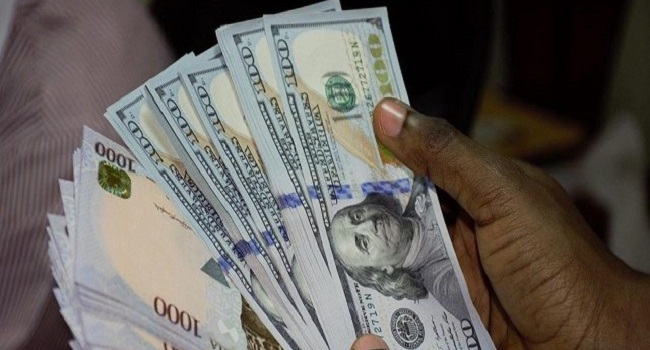Business
Naira falls to N460 per dollar at parallel market

The U.S. dollar sold for N460 at the parallel market on Tuesday, which was more than 15% spread relative to the interbank rate of N387 to a dollar on Monday.
Bloomberg said the plunge in the Nigerian Naira in the unofficial foreign exchange market raised the possibility that the Central Bank of Nigeria (CBN) might have to weaken the official rate further after devaluing the currency on 21st March.
The CBN moved to harmonise the two rates when it devalued the Naira official rate to N360 a dollar from N307 and raised the rate at which investors and exporters could buy the dollar to N380 from N366 last month.
The forex liquidity crisis is triggered by poor dollar inflow resulting from the falling prices of oil, which accounts for about 90% of Nigeria’s foreign exchange earnings.
Read also: IMF to respond to Nigeria’s $3.4bn loan request by end of April
Consistent fall in the value of Naira is also partly influenced by capital flight by foreign investors and low foreign remittances in the wake of the coronavirus outbreak as well as suspension of forex sales to Bureau De Change operators by the central bank.
In March, the CBN had halted its periodic intervention in the investors and exporters window, further worsening the liquidity crisis.
“For us to see to improved convergence in the rates, we need to see the central bank stepping into the foreign-exchange market again to begin intervention sales,” Omotola Abimbola of Chapel Hill Denham told Bloomberg.
As demand for the dollar by importers, forex speculators and foreign investors in the debt market, who want to repatriate funds, increase, more pressure will be mounted on the Naira as well as Nigeria’s declining external reserves.
“We foresee further pressure on the naira as a result of declining export revenue combined with deepening economic fallout from the coronavirus.
“The pursuit of dollars is exacerbated by demand from foreign investors unable to repatriate funds,” said Murega Mungai and Terry Karanja, analysts at AZA Finance.
Join the conversation
Support Ripples Nigeria, hold up solutions journalism
Balanced, fearless journalism driven by data comes at huge financial costs.
As a media platform, we hold leadership accountable and will not trade the right to press freedom and free speech for a piece of cake.
If you like what we do, and are ready to uphold solutions journalism, kindly donate to the Ripples Nigeria cause.
Your support would help to ensure that citizens and institutions continue to have free access to credible and reliable information for societal development.




![[RipplesMetrics] Naira Falls By 324% Since 1999, What Does The Future Hold?](https://i0.wp.com/www.ripplesnigeria.com/wp-content/uploads/2021/05/delcine-updated.jpg?resize=400%2C240&ssl=1)
![[RipplesMetrics] Naira Falls By 324% Since 1999, What Does The Future Hold?](https://i0.wp.com/www.ripplesnigeria.com/wp-content/uploads/2021/05/delcine-updated.jpg?resize=80%2C80&ssl=1)










